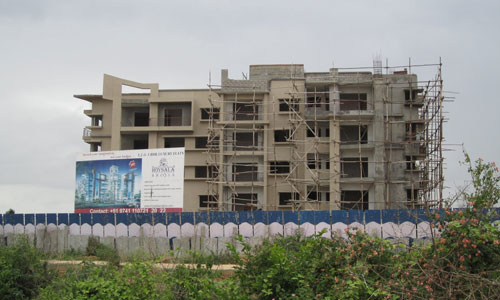 The long-pending legislation – Real Estate (Regulation and Development) Bill – that aims to infuse “accountability and transparency” in the realty sector, backed by stringent norms, is out in the public domain. Developers will have to register each project with the real estate regulator prior to its launch. They cannot advertise, invite bookings and receive advances or deposits from customers for the project without registering it with the regulator. Any deposit or advance can be taken only after entering into an agreement of sale with the customer, stipulates the new draft bill.
The long-pending legislation – Real Estate (Regulation and Development) Bill – that aims to infuse “accountability and transparency” in the realty sector, backed by stringent norms, is out in the public domain. Developers will have to register each project with the real estate regulator prior to its launch. They cannot advertise, invite bookings and receive advances or deposits from customers for the project without registering it with the regulator. Any deposit or advance can be taken only after entering into an agreement of sale with the customer, stipulates the new draft bill.
However, the proposed real estate regulation legislation has already drawn sharp criticism from developers. The draft says a promoter may face up to three years in jail or a fine up to a tenth of the estimated project cost for the offences mentioned under various sections.
A clause on mandatory registration of projects and for issuance of licences was opposed by the industry body CREDAI (Confederation of Real Estate Developers’ Association of India).
“Getting licences involves a human element, that will breed grounds of corruption,” says Lalit Kumar Jain, Chairman of CREDAI. He believes this would add another layer to the innumerable sanctions and approvals.
“This apprehension of another layer to the maze of clearances already required is absolutely correct,” says Anurag Mathur, Managing Director, Cushman and Wakefield, India. However, the regulator may gradually dismantle some of the approvals at the Centre or state level, he adds. Given that land is a state subject, with every state having its own laws, “the Bill will bring uniformity in the real estate sector through the country”, he says. He says the major plus point was the consumer redressal mechanism.
On the penalty, Jain said the bill would create a ‘terror-like’ situation in the industry, “The Bill would prevent people from joining the industry due to fear of harassment and tarnishing of image,” he says. This is against the objective of a regulatory bill, he adds.
The Bill is expected to be introduced in Parliament in the coming session. Jain says the industry would seek a meeting with Housing Minister Selja Kumari over many of the clauses. Earlier this week, she had said that in case any changes were required, “We will discuss that, in the interest of the sector”.
According to Sachin Sandhir, Managing Director (South Asia) of RICS (Royal Institute of Chartered Surveyors), the current version of the bill is no longer one of a model bill prepared by the Central Government for the states. “With the format having undergone a change, the bill is now applicable to the entire country and leaves it to the state governments to establish a real estate regulatory authority and other rules and procedures in due course,” he says.
There hasn’t been a significant change in the other controversial provisions, including the minimum five per cent bank guarantee, registration of projects with the authority, developers’ obligations towards consumers and the various functions the regulator must perform.





